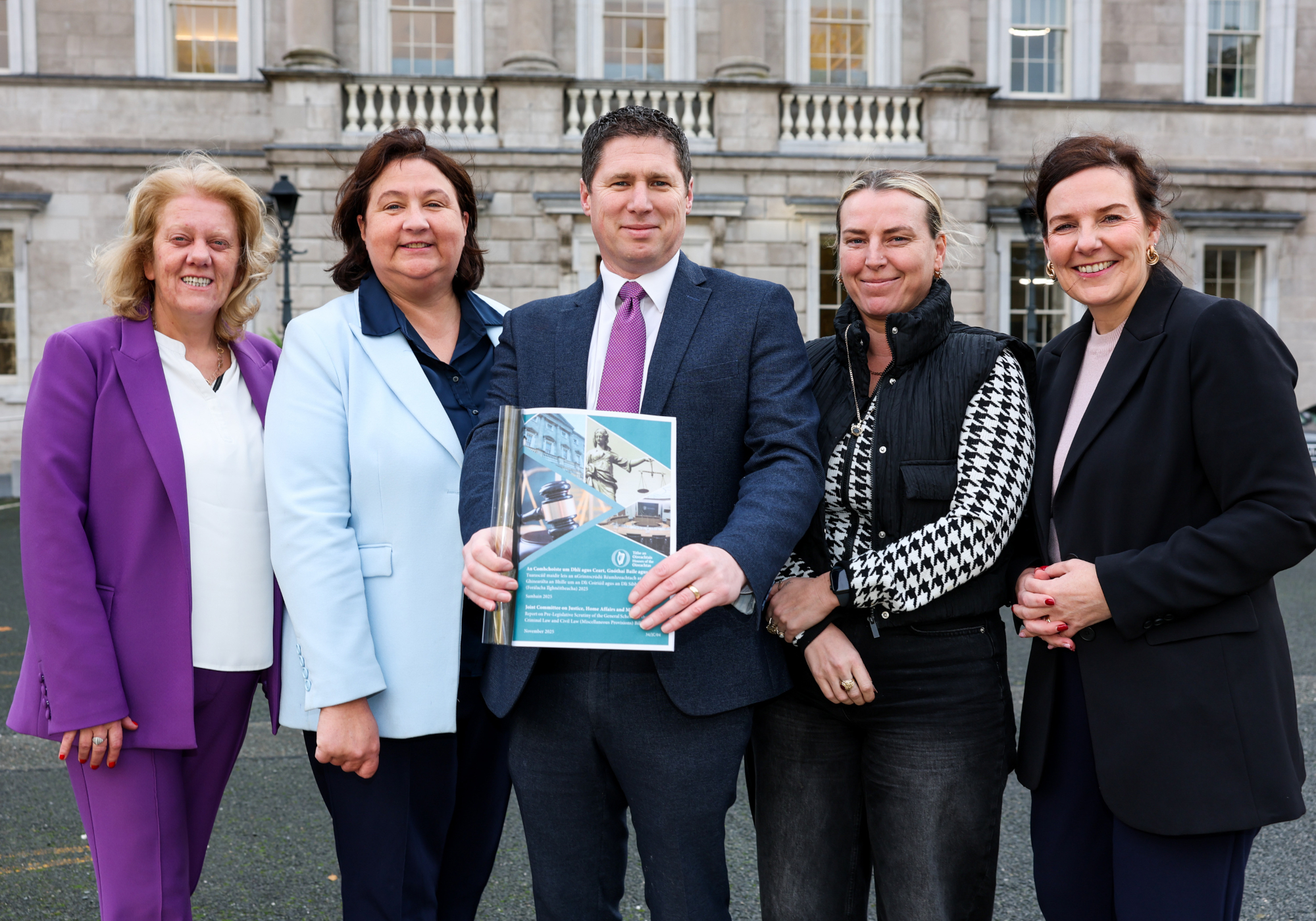Call for ‘unconditional ban’ on use of counselling records in sex offence trials

Pictured: Oireachtas justice committee members Paula Butterly TD, Senator Anne Rabbitte, Matt Carthy TD, Senator Lynn Ruane and Catherine Callaghan TD.
There should be a “complete and unconditional ban” on the use of counselling records in sexual offence trials, the Oireachtas justice committee has recommended.
The joint committee on justice, home affairs and migration yesterday published its pre-legislative scrutiny report on the general scheme of the Criminal Law and Civil Law (Miscellaneous Provisions) Bill 2025.
At present, section 19A of the Criminal Evidence Act 1992 provides a mechanism whereby an accused can apply to the court for the disclosure of a complainant’s counselling records in proceedings for a sexual offence.
A judge can examine the counselling records and hold a disclosure hearing — at which the complainant is entitled to appear and be legally represented — to decide if there is relevant information to be disclosed to the defence.
However, concerns have been raised that complainants are not adequately protected by the existing process because they feel under pressure to waive their right to non-disclosure of their counselling notes, meaning a disclosure hearing is not held.
The general scheme proposes to address this issue by requiring a judicial examination of the counselling records and subsequent disclosure hearing to automatically take place wherever such records are sought by the accused.
The justice committee report suggests that this does not go far enough, while also making recommendations on a number of other aspects of the bill.
Committee chairperson Matt Carthy said: “This general scheme of the bill contains provisions to change a large and diverse range of existing legislation.
“It provides for a wide range of reforms to the criminal law and also includes a number of important civil law provisions and the proposed legislation responds to a range of pressing challenges for the criminal justice system.
“I would like to express my appreciation to all the stakeholders for their contributions and to the members of the committee for their engagement on this subject.
“In particular I want to express the committee’s thanks to Hazel Behan, a victim and survivor whose evidence had a significant impact on the committee members.”
He continued: “The committee noted the particular interest in Head 19, which deals with the issue of counselling notes in sexual offence trials.
“The committee welcomes certain aspects of this legislation, such as provisions that will allow court proceedings to be undertaken more efficiently.
“However, following its hearing on the general scheme, the committee wishes to highlight other areas within the legislation, including the provisions set out in Head 19, the human rights implications of using incapacitant spray, and how prison overcrowding is being addressed.
“In undertaking pre-legislative scrutiny, the committee has sought to scrutinise the proposed legislation and provide recommendations on areas where it believes change or amendments are warranted.
“Among the areas identified for further examination within the general scheme include the issue of remote hearings, the use of incapacitant spray in prisons, extending the use of Community Service Orders and proposals to allow gardaí the direction to remove face coverings.
“Amongst the key recommendations which the committee makes is that Head 19 sets out a complete and unconditional ban on the use of counselling records in sexual offence trials.
“Finally, I hope that this report will help to inform the legislative process and make a valuable contribution to the forthcoming legislation.”










